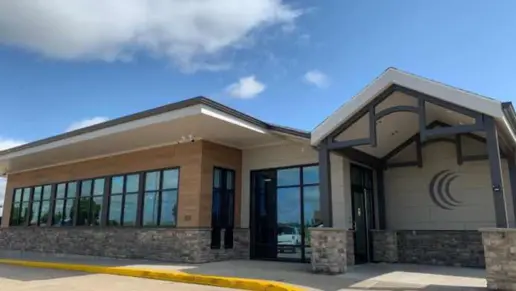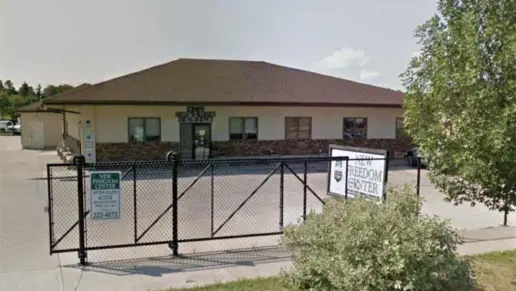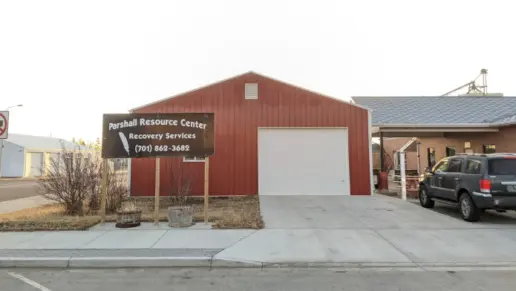I loved ADAPT! the staff was very professional and kind. Excellent service and amazing atmosphere. They are very understanding and will guide you step by step.
About ADAPT
ADAPT is a behavioral health agency that addresses addiction and mental health and provides electronic monitoring services from their office headquarters in Bismarck, North Dakota. They also offer telehealth options throughout the state. At this location, they provide several in-person services that include domestic violence and anger management classes, DUI seminars and evaluations for anger management, domestic violence, DUI, substance use and minor in- possession evaluations.
The organization is licensed through the Secretary of State and bonded and insured through the National Association of Social Workers. Since 2001, they have provided clients with the tools they need to change their future.
Together, the staff has more than 400 years of experience and actively educates and provides direction to the local law enforcement and criminal justice system. The goal is to work with organizations to ensure they make informed decisions that reduce incarceration and recidivism. They offer a unique service of electronic monitoring throughout the state and in Western Minnesota.
The GPS monitoring and remote alcohol testing provide intensive supervision to track the location of individuals who are restricted to their residences. Electronic monitoring programs communicate with a central computer and include GPS to detect your location. Smartphone mobile applications or voice recognition may be used to also periodically check in. Electronic monitoring may be a condition of post conviction supervision or pretrial release. It can be used to reduce prison overcrowding, track juveniles, reduce recidivism, or track adults in drug rehabilitation programs, including those convicted of DUIs.
In addition to the testing, seminars, education, and evaluation, they also provide mental health services that include relapse prevention programs and cognitive restructuring courses. Their services address substance use disorders and mental health conditions for adults, teens, and couples. You can book classes or evaluations online. Each of the services is provided by appointment only and you must prepay.
Rehab Score
Gallery

Location
Other Forms of Payment
Self-pay involves paying for treatment out of your own pocket. You can use savings or credit, get a personal loan, or receive help from family and friends to fund your treatment. If you don't have insurance or your insurance plan doesn't cover a specific program, self-pay can help ensure you still get the care you need.
Medicaid is a state based program that helps lower-income individuals and families pay for healthcare. Medicaid covers addiction treatment so those enrolled can use their coverage to pay for rehab. When a program accepts Medicaid the client often pays very little or nothing out of their own pocket.
Medicare is a federal program that provides health insurance for those 65 and older. It also serves people under 65 with chronic and disabling health challenges. To use Medicare for addiction treatment you need to find a program that accepts Medicare and is in network with your plan. Out of pocket costs and preauthorization requirements vary, so always check with your provider.
Addiction Treatments
Levels of Care
Treatments
The goal of treatment for alcoholism is abstinence. Those with poor social support, poor motivation, or psychiatric disorders tend to relapse within a few years of treatment. For these people, success is measured by longer periods of abstinence, reduced use of alcohol, better health, and improved social functioning. Recovery and Maintenance are usually based on 12 step programs and AA meetings.
The goal of drug rehab in North Dakota is to help individuals overcome addiction. These programs provide treatment for both mind and body and teach participants how to live healthy, productive lives without drug abuse.
Many of those suffering from addiction also suffer from mental or emotional illnesses like schizophrenia, bipolar disorder, depression, or anxiety disorders. Rehab and other substance abuse facilities treating those with a dual diagnosis or co-occurring disorder administer psychiatric treatment to address the person's mental health issue in addition to drug and alcohol rehabilitation.
A combined mental health and substance abuse rehab has the staff and resources available to handle individuals with both mental health and substance abuse issues. It can be challenging to determine where a specific symptom stems from (a mental health issue or an issue related to substance abuse), so mental health and substance abuse professionals are helpful in detangling symptoms and keeping treatment on track.
Opioid rehabs specialize in supporting those recovering from opioid addiction. They treat those suffering from addiction to illegal opioids like heroin, as well as prescription drugs like oxycodone. These centers typically combine both physical as well as mental and emotional support to help stop addiction. Physical support often includes medical detox and subsequent medical support (including medication), and mental support includes in-depth therapy to address the underlying causes of addiction.
Programs


Clinical Services
Cognitive Behavioral Therapy (CBT) is a therapy modality that focuses on the relationship between one's thoughts, feelings, and behaviors. It is used to establish and allow for healthy responses to thoughts and feelings (instead of unhealthy responses, like using drugs or alcohol). CBT has been proven effective for recovering addicts of all kinds, and is used to strengthen a patient's own self-awareness and ability to self-regulate. CBT allows individuals to monitor their own emotional state, become more adept at communicating with others, and manage stress without needing to engage in substance abuse.
Group therapy is any therapeutic work that happens in a group (not one-on-one). There are a number of different group therapy modalities, including support groups, experiential therapy, psycho-education, and more. Group therapy involves treatment as well as processing interaction between group members.
In individual therapy, a patient meets one-on-one with a trained psychologist or counselor. Therapy is a pivotal part of effective substance abuse treatment, as it often covers root causes of addiction, including challenges faced by the patient in their social, family, and work/school life.
Motivational interviewing helps you find internal motivation to change. If you're feeling insecure about your ability to change or ambivalent about the need for change, this method can help you explore your options and motivations.
Trauma therapy addresses traumatic incidents from a client's past that are likely affecting their present-day experience. Trauma is often one of the primary triggers and potential causes of addiction, and can stem from child sexual abuse, domestic violence, having a parent with a mental illness, losing one or both parents at a young age, teenage or adult sexual assault, or any number of other factors. The purpose of trauma therapy is to allow a patient to process trauma and move through and past it, with the help of trained and compassionate mental health professionals.
Contact Information
1720 Burnt Boat Drive
Suite 108
Bismarck, ND 58503


